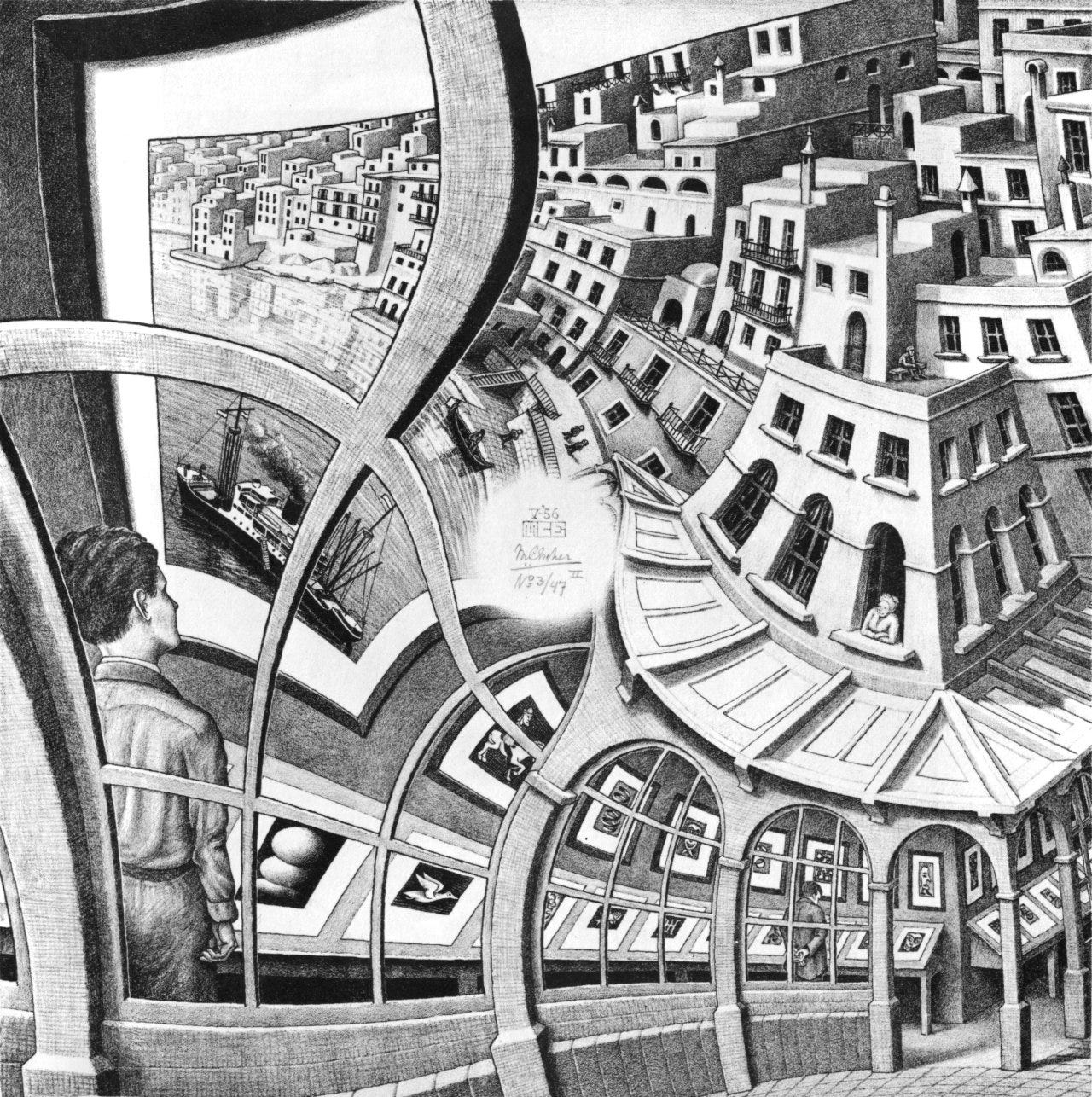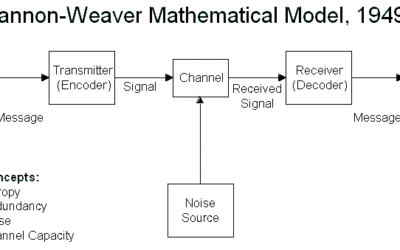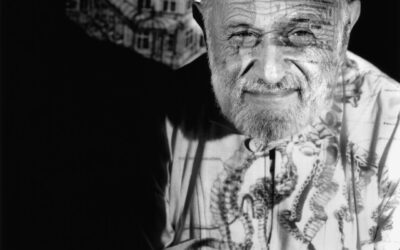The Convenient Dismissal In 2018, Nickelodeon "parted ways" with Dan Schneider, their most profitable showrunner of the 2000s and 2010s. The timing was no accident. After decades of turning a blind eye to mounting complaints about his behavior—from verbal abuse to inappropriate content to concerning relationships with child actors—the network finally acted. Not because they suddenly discovered these issues, but because the cultural tide had shifted. The #MeToo movement had exposed Harvey Weinstein, the public was...
Media and Digital Culture: How Technology Reshapes Human Connection and Mental Health
Comprehensive Analysis of Digital Age Psychology and Cultural Transformation in Birmingham
Welcome to Taproot Therapy Collective’s comprehensive exploration of how digital technology fundamentally transforms culture, relationships, social structures, and psychological wellbeing in our interconnected world. Our media and digital culture content examines the profound ways that online communities, social media platforms, digital communication technologies, and virtual environments reshape everything from intimate family dynamics to global political discourse, with significant implications for mental health treatment and therapeutic practice.
Understanding Digital Culture’s Psychological Impact
Digital culture represents one of the most significant cultural shifts in human history, fundamentally altering how we form relationships, process information, construct identity, and navigate social hierarchies. This transformation affects every aspect of psychological experience, from basic attention patterns and memory formation to complex social cognition and emotional regulation processes that require new therapeutic approaches and cultural understanding.
Research from leading institutions including Stanford University’s Virtual Human Interaction Lab, MIT Technology Review, and Pew Research Center demonstrates how digital technology creates unprecedented changes in human behavior, social connection, and psychological development that require updated therapeutic frameworks and cultural competency for effective mental health treatment.
Our comprehensive analysis builds on the therapeutic approaches detailed on our main services page, where trauma-informed therapy, EMDR, Brainspotting, and somatic approaches must now address digital-age psychological challenges including technology addiction, social media trauma, cyberbullying effects, and the complex identity formation processes that occur in virtual environments.
Social Media Psychology and Platform-Specific Mental Health Effects
Facebook and Identity Curation Psychology examines how the platform’s emphasis on life highlights and social comparison affects self-esteem, depression, and anxiety levels among users of different ages. Research shows that Facebook use correlates with increased social comparison, FOMO (fear of missing out), and depressive symptoms, particularly among individuals already struggling with self-worth and social anxiety issues.
Understanding how Facebook’s algorithmic timeline creates echo chambers and confirmation bias helps explain how political polarization and social division affect individual mental health while contributing to broader cultural fragmentation that impacts community mental health resources and social support systems.
Instagram and Visual Identity Pressure explores how the platform’s focus on curated visual content creates unique psychological pressures around body image, lifestyle comparison, and authentic self-expression. Studies demonstrate higher rates of body dysmorphia, eating disorders, and material comparison among heavy Instagram users, particularly adolescents and young adults developing identity and self-concept.
The platform’s influence extends beyond individual psychology to shape cultural beauty standards, consumer behavior, and social status markers that affect entire communities’ mental health and wellbeing patterns, requiring therapeutic approaches that address both individual symptoms and cultural pressures.
TikTok and Attention Economy Psychology investigates how short-form video content affects attention spans, dopamine reward systems, and information processing capabilities. Research reveals concerning impacts on sustained attention, deep thinking capabilities, and the ability to engage with complex, nuanced content that requires extended focus and contemplation.
TikTok’s algorithm-driven content delivery creates particular psychological patterns including rapid reward seeking, shortened attention spans, and increased susceptibility to viral misinformation that affects both individual mental health and broader cultural discourse patterns.
Twitter and Public Discourse Psychology examines how character limits, public interaction formats, and trending topic algorithms affect political psychology, social discourse, and collective mental health. The platform’s design encourages quick reactions, polarized thinking, and public conflict that can exacerbate anxiety, political trauma, and social isolation.
Understanding Twitter’s role in cancel culture, viral outrage cycles, and public shaming helps therapists address clients experiencing online harassment, reputation damage, and the psychological impacts of participating in or witnessing digital mob dynamics.
Digital Communication and Relationship Formation
Online Dating Psychology and Attachment Patterns explores how digital platforms affect romantic relationship formation, attachment security, and intimacy development. Dating apps create unique psychological challenges including paradox of choice, superficial evaluation criteria, and ghosting behaviors that affect attachment systems and relationship expectations.
Research demonstrates how online dating can both expand social networks and create psychological patterns including serial dating, commitment avoidance, and unrealistic partner expectations that require therapeutic attention and relationship skill development.
Virtual Friendships and Social Connection examines how online communities create new forms of belonging while potentially undermining face-to-face social skills and deep relationship formation. Gaming communities, social media groups, and virtual interest-based connections offer both authentic social support and risks of social replacement that affects overall psychological development.
Understanding how virtual relationships complement versus substitute for in-person connection helps therapists support clients in developing balanced social networks that provide both digital community benefits and essential face-to-face interpersonal skills.
Family Dynamics in Digital Households investigates how technology use affects family communication, parent-child relationships, and household emotional regulation. Screen time conflicts, digital supervision challenges, and generational technology gaps create new sources of family stress that require updated therapeutic approaches to family systems work.
Digital technology’s impact on family dinner conversations, bedtime routines, and quality time creates challenges for attachment formation, emotional regulation modeling, and family bonding that affect child development and family mental health outcomes.
Cultural Phenomena and Collective Psychology
Cancel Culture and Public Shaming Psychology examines how digital platforms enable new forms of social control, punishment, and community boundary enforcement that affect both participants and observers. Cancel culture creates complex psychological dynamics including hypervigilance, self-censorship, and social anxiety that affect broader cultural discourse and individual mental health.
Understanding the psychological mechanisms behind viral outrage, public shaming, and reputation destruction helps therapists support clients navigating online harassment while addressing the broader cultural trauma that affects entire communities’ sense of safety and authentic expression.
Influencer Culture and Parasocial Relationships explores how social media personalities create one-sided emotional connections that affect followers’ self-esteem, purchasing behavior, and life satisfaction. Parasocial relationships with influencers can provide positive role modeling and community feeling while creating unrealistic life comparisons and material dissatisfaction.
The influencer economy’s impact on career expectations, lifestyle aspirations, and success metrics affects entire generations’ mental health and life satisfaction, requiring therapeutic approaches that address both individual symptoms and cultural pressures around achievement and authenticity.
Viral Content Psychology and Collective Attention investigates how algorithmically-amplified content shapes collective consciousness, cultural values, and shared reality. Viral phenomena create shared cultural experiences while potentially spreading misinformation, moral panics, and simplified thinking that affects community mental health and social cohesion.
Understanding how viral content creation and consumption affect individual psychology helps therapists address clients’ relationships with social media fame, viral shaming experiences, and the psychological impacts of participating in or witnessing rapidly spreading cultural phenomena.
Technology Addiction and Digital Wellness
Gaming Addiction and Virtual Escape Psychology examines how video games serve both healthy recreation and problematic escape from psychological distress. Gaming addiction involves complex psychological patterns including achievement seeking, social connection, and reality avoidance that require nuanced therapeutic approaches beyond simple abstinence models.
Understanding how different game genres affect psychological development, social skills, and emotional regulation helps therapists support clients in developing healthy gaming relationships while addressing underlying psychological needs that excessive gaming may represent.
Social Media Addiction and Dopamine Dysregulation explores how platform design features including notifications, likes, and infinite scroll create addictive usage patterns that affect brain chemistry, attention regulation, and emotional stability. Social media addiction involves neurobiological changes similar to substance addiction while creating unique psychological dependence patterns.
Therapeutic approaches to social media addiction must address both individual psychological factors and the intentionally addictive design features that platforms use to capture and maintain user attention for advertising revenue purposes.
Digital Detox and Mindful Technology Use investigates evidence-based approaches to reducing problematic technology use while maintaining beneficial digital connections. Digital wellness requires developing metacognitive awareness of technology’s psychological effects while building practical skills for intentional, bounded technology engagement.
Understanding how to support clients in developing healthy technology boundaries helps address anxiety, depression, and attention difficulties that often improve with reduced screen time and increased face-to-face social connection.
Generational Differences and Digital Adaptation
Digital Natives vs. Digital Immigrants Psychology examines how different generations adapt to and are affected by digital technology based on their developmental experiences with digital versus analog communication and information processing. Generational differences in digital fluency create unique family dynamics, workplace challenges, and therapeutic considerations.
Understanding how brain development during digital versus pre-digital childhoods affects learning styles, attention patterns, and social communication helps therapists provide developmentally appropriate interventions for clients across different age groups and technological backgrounds.
Adolescent Development in Digital Environments explores how social media use during critical identity formation periods affects personality development, peer relationships, and psychological adjustment. Adolescent digital behavior patterns including cyberbullying, sexting, and online identity experimentation require specialized therapeutic approaches that understand normal digital development versus problematic patterns.
Research demonstrates how adolescent social media use affects sleep patterns, academic performance, and emotional regulation in ways that require updated approaches to adolescent mental health treatment and family therapy that address digital factors alongside traditional developmental challenges.
Elderly Populations and Digital Exclusion investigates how limited digital access and skills affect older adults’ social connection, healthcare access, and mental health resources. Digital divides create new forms of social isolation and discrimination that affect elderly mental health while digital inclusion programs can enhance social connection and cognitive stimulation.
Understanding how to support elderly clients in beneficial technology adoption while addressing digital overwhelm and scam victimization helps reduce isolation and improve access to mental health resources and social support systems.
Virtual Reality and Augmented Reality Psychology
Immersive Technology and Presence Psychology examines how virtual and augmented reality environments affect perception, embodiment, and psychological experience. VR technology creates unique opportunities for therapeutic intervention including exposure therapy, social skills training, and trauma processing while raising questions about reality perception and identity boundaries.
Research on virtual embodiment demonstrates how VR experiences can affect self-perception, empathy development, and behavioral change in ways that enhance therapeutic outcomes while requiring careful consideration of psychological safety and integration processes.
Metaverse Psychology and Virtual Identity explores how persistent virtual worlds affect identity formation, social relationships, and psychological development. Virtual worlds create opportunities for identity experimentation and social connection while potentially contributing to reality dissociation and virtual relationship dependency.
Understanding how clients navigate multiple identities across virtual and physical environments helps therapists support integrated identity development while addressing the psychological challenges of living across multiple reality frameworks.
Artificial Intelligence and Human Psychology
AI Interaction and Human Connection investigates how artificial intelligence technologies affect human social expectations, empathy development, and relationship formation. AI chatbots, virtual assistants, and social robots create new forms of interaction that may supplement or substitute for human connection in ways that affect psychological development.
Research on human-AI attachment demonstrates how people form emotional connections with artificial systems while exploring the implications for human relationship skills, emotional regulation, and social development in increasingly AI-integrated environments.
Algorithmic Decision-Making and Human Agency examines how AI systems that make recommendations, filter information, and automate decisions affect human autonomy, critical thinking, and psychological empowerment. Algorithmic systems can enhance decision-making efficiency while potentially undermining human agency and critical evaluation skills.
Understanding how algorithmic influence affects client decision-making, self-efficacy, and personal responsibility helps therapists support autonomous functioning while addressing the psychological impacts of increasing automation in daily life decisions.
Information Overload and Cognitive Processing
Digital Information Processing and Attention explores how constant information streams affect cognitive function, decision-making, and psychological wellbeing. Information overload creates stress responses, decision fatigue, and attention fragmentation that affect mental health while digital information literacy becomes essential for psychological functioning.
Understanding how to help clients develop healthy information consumption patterns supports anxiety reduction, improved focus, and better decision-making while addressing the psychological impacts of living in information-rich environments.
Misinformation Psychology and Reality Construction investigates how false information spreads through digital networks and affects individual and collective psychology. Misinformation consumption can increase anxiety, paranoia, and social conflict while undermining trust in institutions and evidence-based information sources.
Therapeutic approaches to misinformation exposure must address both individual psychological effects and the broader cultural trauma that occurs when shared reality breaks down and communities cannot agree on basic factual information.
Privacy, Surveillance, and Psychological Security
Digital Privacy and Psychological Safety examines how data collection, surveillance, and privacy violations affect mental health, trust, and authentic self-expression. Privacy concerns create anxiety and self-censorship while surveillance technologies affect behavior in ways that may undermine psychological autonomy and authentic relationship formation.
Understanding how privacy violations and surveillance fears affect client psychology helps therapists address anxiety, paranoia, and authentic expression challenges while supporting healthy digital boundary setting and privacy protection behaviors.
Cybersecurity Trauma and Digital Victimization explores how online harassment, identity theft, revenge porn, and other digital crimes affect psychological wellbeing and recovery. Digital victimization creates unique trauma patterns that require specialized therapeutic approaches addressing both individual psychological effects and practical safety planning.
Therapeutic work with cybersecurity trauma must address both psychological healing and practical digital safety skills while recognizing how digital victimization intersects with other forms of trauma and oppression.
Adam Curtis’s Documentary Films: Emotional Truth Telling Through the Language of Conspiracy Theory
Executive and Physician Burnout, History of Psychotherapy, Psychology of Film and TV, Psychology of Media and Culture
A Guide for Psychotherapists and Cultural Critics Why Psychotherapists Should Watch Adam Curtis For mental health professionals seeking to understand the cultural waters their clients swim in, Adam Curtis's documentaries offer an invaluable lens. His films map the unconscious narratives that shape modern anxiety, alienation, and the collapse of collective meaning-making. Curtis doesn't just document history—he performs a kind of cultural psychoanalysis, revealing the hidden emotional logic that governs how power...
John C. Lilly: When Dolphins, Drugs, and the Deep End of Consciousness Collided in the Psychedelic ’70s
Psychology, Psychology of History, Psychology of Media and Culture, Psychotherapy Biographies: Historical Figures in the History of Psychology
The Mad Scientist Who Made Flipper Look Like a Documentary Picture this: It's 1965, and while most scientists are content with their lab coats and microscopes, one maverick researcher is floating in a pitch-black tank filled with body-temperature salt water, high on ketamine, trying to establish interspecies communication with dolphins. No, this isn't the plot of a B-movie (though it inspired several). This was Tuesday for Dr. John C. Lilly, the neuroscientist who took "thinking outside the box" to mean...
The Dark Reflection: Adam Curtis’s “All Watched Over by Machines of Loving Grace”
Psychology of Film and TV, Psychology of Media and Culture
What is the Point of All Watched over by Machines of Loving Grace I like to think (and the sooner the better!) of a cybernetic meadow where mammals and computers live together in mutually programming harmony like pure water touching clear sky. These opening lines from Richard Brautigan's 1967 poem "All Watched Over by Machines of Loving Grace" paint a seductive picture: a world where nature and technology blend seamlessly, where humans and machines coexist in a kind of symbiotic dance. But beneath the surface of...
Generational Cycles and Parts-Based Therapy: Understanding Generational Differences as Overreactions
Color Psychology, Jungian Therapy and Depth Psychology, Psychology of Media and Culture, Psychology Topics and Articles
The Generational Cycles of Trauma: A Parts-Based Perspective It has long been pointed out be different schools of therapy that the patterns that repeat in the individual psyche on a micro level also mirror the family system at a mezzo and the society at a macro level. Parts-based therapy, a post-jungian modality rooted in the recognition of distinct internalized aspects of the self, offers a valuable lens through which to understand these generational cycles. Parts-based therapies represent an evolution of...
Biosemiotics: Bridging Biology, Consciousness, and the Anthropology of Self
Anthropology and Evolutionary Psychology for Therapy, Psychology of Media and Culture, Psychology of Modernism Post Modernism and the Meta Modern
What is Biosemiotics? Biosemiotics is an emerging interdisciplinary field that explores how living systems create, interpret, and communicate meaning. It offers a unique lens through which to understand the intricate relationships between biology, consciousness, and the way we construct our sense of self. By bridging these domains, biosemiotics provides valuable insights into therapy, trauma, and the anthropology of self. At its core, biosemiotics posits that life is inherently semiotic - that is, all living...
Walter Ong: Orality, Literacy, and the Jesuit Worldview
Anthropology and Evolutionary Psychology for Therapy, Psychology of Media and Culture, Psychotherapy Biographies: Historical Figures in the History of Psychology
I. Who was Walter Ong Walter J. Ong (1912-2003) was an American Jesuit priest, professor of English literature, and cultural and religious historian. Ong made groundbreaking contributions to the fields of literacy studies, media ecology, and the evolution of human consciousness. His work explored the profound differences between oral and literate cultures and how the shift from orality to literacy has shaped human thought, expression, and social organization throughout history. As a Jesuit scholar, Ong's ideas...
Is Metamodern Meme Cultural Making us Speak Literally and Symbolically at the Same Time
Metamodernism and Deconstruction, Philosophy for Therapists, Psychology of Media and Culture, Psychology of Modernism Post Modernism and the Meta Modern
The Metamodern Linguistic Turn What is Metamodernism? Metamodernism is an emerging cultural paradigm and sensibility that transcends the dichotomies of modernism and postmodernism. It seeks a synthesis of the universal aspirations and grand narratives of modernism with the relativism, irony and deconstruction of postmodernism. As we progress further into the 21st century, it becomes increasingly clear that the cultural frameworks of the past are no longer adequate for making sense of our rapidly shifting world....
The Frame of Mind: How Aspect Ratio Shapes Our Cinematic Experience
Psychology of Film and TV, Psychology of Media and Culture
The Psychology of Aspect Ratio How does aspect ratio tell story and influence emotion? In the realm of cinema, the frame is not just a technical necessity but a powerful psychological tool. The proportions of that frame, known as the aspect ratio, profoundly influence how we as viewers engage with, interpret, and emotionally react to the story unfolding before us. From the nearly square frames of early silent films to the widescreen marvels that dominate multiplexes today, the evolution of aspect ratio parallels...
Donna Haraway : Cyborg Feminism and Technoscience
History of Psychotherapy, Psychology, Psychology of Film and TV, Psychology of Media and Culture
I. Who is Donna Haraway Donna Haraway (b. 1944) is a prominent American scholar known for her groundbreaking contributions to the fields of science and technology studies, feminist theory, and cultural studies. Haraway's interdisciplinary approach, which draws from biology, philosophy, critical theory, and the history of science, has reshaped contemporary understandings of the complex relationships between humans, animals, and machines. Her influential works, such as "A Cyborg Manifesto" (1985) and "Simians,...
Neil Postman: Media Critic and Cultural Theorist
Psychology, Psychology of Film and TV, Psychology of Media and Culture, Psychotherapy Biographies: Historical Figures in the History of Psychology
Who Was Neil Postman? Neil Postman (1931-2003) was an American media theorist, cultural critic, and educator whose work profoundly influenced our understanding of the relationship between media, technology, and culture. His incisive critiques of television, education, and the information age continue to resonate in today's digital landscape. This paper explores Postman's life, key ideas, and enduring legacy, examining the relevance of his thought to fields such as psychology, education, and media studies. II....
Friedrich Kittler: Theorist of Media and Technology
Anthropology and Evolutionary Psychology for Therapy, Metamodernism and Deconstruction, Psychology, Psychology of Film and TV, Psychology of Media and Culture, Psychotherapy Biographies: Historical Figures in the History of Psychology
Friedrich Kittler: Digital Theory I. Who was Friedrich Kittler Friedrich Kittler (1943-2011) was a German literary scholar, media theorist, and cultural historian who made significant contributions to the fields of media studies, discourse analysis, and the history of technology. Kittler's work, which draws on a wide range of disciplines including literature, philosophy, psychoanalysis, and information theory, offers a provocative and influential perspective on the ways in which media technologies shape human...
Lev Manovich: Pioneering Theorist of New Media
Psychology, Psychology of Film and TV, Psychology of Media and Culture, Psychotherapy Biographies: Historical Figures in the History of Psychology
Who is Lev Manovich? Lev Manovich is a pioneering theorist of new media, whose groundbreaking work has shaped the field of digital culture and media studies. Born in Moscow in 1960, Manovich's intellectual journey spans computer science, visual arts, media theory, and cultural analytics. His seminal book, "The Language of New Media" (2001), laid the foundation for understanding the unique characteristics and affordances of digital media, and their profound impact on contemporary culture and society. Biography of...
Marshall McLuhan: The Medium is the Message
Metamodernism and Deconstruction, Psychology of Fiction / Flash Fiction / Screenwriting, Psychology of Film and TV, Psychology of Media and Culture, Psychotherapy Biographies: Historical Figures in the History of Psychology
Who was Marshall McLuhan? Marshall McLuhan, a Canadian philosopher, professor, and public intellectual, stands as one of the most influential figures in media theory and cultural studies of the 20th century. His work, characterized by its prescient insights into the nature of media and its effects on human consciousness and society, continues to resonate in our increasingly digital and interconnected world. This paper seeks to explore McLuhan's life, ideas, and enduring legacy, situating his thought within the...
Claude Shannon and Warren Weaver: Architects of Information Theory
Philosophy for Therapists, Psychology of Film and TV, Psychology of Media and Culture, Psychotherapy Biographies: Historical Figures in the History of Psychology
I. What is the Shannon Weaver Model Claude Shannon (1916-2001) and Warren Weaver (1894-1978) were two American mathematicians and engineers whose collaborative work laid the foundation for modern information theory. Their groundbreaking research in the mid-20th century revolutionized our understanding of communication, paving the way for the digital age and profoundly influencing fields ranging from computer science and cryptography to linguistics and psychology. This paper explores the lives and ideas of Claude...
Vilém Flusser: Philosopher of Communication and Media Theory
Psychology, Psychology of Media and Culture, Psychology of Politics
Vilém Flusser: Philosopher of Simulacra I. Who was Vilém Flusser Vilém Flusser (1920-1991) was a Czech-born philosopher, writer, and media theorist who made significant contributions to the understanding of communication, media, and technology in the late 20th century. Flusser's work, which spans across multiple languages and disciplines, offers a unique perspective on the ways in which media shape human consciousness and culture. His ideas about the impact of photography, digital media, and technical images on...
The Revolutionary Life and Ideas of Guy Debord: Exploring the Situationist Critique of Modern Society
Anthropology and Evolutionary Psychology for Therapy, Metamodernism and Deconstruction, Psychology of Media and Culture, Psychotherapy Biographies: Historical Figures in the History of Psychology
Guy Debord: Exploring the Situationist Critique of Modern Society I. Who was Guy Debord Guy Debord (1931-1994) was a French Marxist theorist, philosopher, filmmaker, and founding member of the Situationist International, a radical avant-garde movement that sought to transform everyday life through the fusion of art and politics. Debord's groundbreaking book "The Society of the Spectacle" (1967) presented a scathing critique of modern capitalist society, arguing that authentic social life had been replaced with...
The Situationist International: Subversive Tricksters of Everyday Life
Philosophy for Therapists, Psychology, Psychology of Media and Culture
What were the Situationists International The Situationist International (SI) was a radical avant-garde movement that emerged in the 1950s and reached its peak of influence in the late 1960s, around the time of the May 1968 uprising in France. Founded on the idea of fusing art, politics, and everyday life into a revolutionary praxis, the SI sought to overthrow the alienating and oppressive structures of modern capitalist society. At the heart of their critique was the concept of the spectacle, developed by Guy...
The Psychology of Advertising
Philosophy for Therapists, Psychology, Psychology of Media and Culture
Advertising has long drawn upon psychology to influence consumers and shape their behavior. As documentary filmmaker Adam Curtis explores, some of the earliest uses of psychological theories in advertising and public relations can be traced back to Sigmund Freud's nephew Edward Bernays in the early 20th century. Bernays and the Application of Freudian Ideas Bernays was one of the first to apply Freudian ideas of the unconscious mind to advertising and public manipulation. In one famous case study, he helped the...
The “Lost World” of Miyazaki’s Masterpiece
Interviews and Case Studies, Phenomenology and Existential Psychology, Psychology, Psychology of Buildings and Architecture, Psychology of Film and TV, Psychology of Media and Culture, Symbolism and Meaning in Psychotherapy
*This review contains spoilers for the film The Boy and the Heron What is The Boy and the Heron trying to tell us? To escape from this depressing situation, they often find themselves wishing they could live in a world of their own - a world they can say is truly theirs, a world unknown even to their parents. To young people, anime is something they incorporate into this private world. I often refer to this feeling as one yearning for a lost world. It's a sense that although you may currently be living in a world...
Parametricism: The New Digital Paradigm in Architecture
Psychology of Buildings and Architecture, Psychology of Media and Culture
The Psychology of Parametricism What is Parametricism? Parametricism, a design paradigm that emerged in the late 20th and early 21st centuries, represents a significant shift in architectural thinking and practice. This approach, which relies heavily on algorithmic design processes and computational power, has reshaped how architects conceptualize, design, and construct buildings. Cultural, Technological, and Political Context The rise of parametricism can be attributed to several key factors: Technological...
What HBO’s Chernobyl Can Teach us About How We Think
Psychology of Media and Culture
Denial and Avoidance as the Root of all Evil Denial and Avoidance as the Root of All Evil: Lessons from Chernobyl for Personal and Societal Growth Introduction: The Echoes of Chernobyl In the haunting HBO miniseries "Chernobyl," a scene unfolds that serves as a powerful metaphor for the human tendency towards denial. A character repeatedly insists that RBMK reactors cannot explode, even as the smoldering ruins of the reactor lie before him. This moment encapsulates a truth that extends far beyond the confines of...























